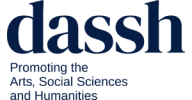Peer review in the Social Sciences

- This event has passed.

Peer review is considered a hallmark of quality in academic research. But peer-review is a highly diverse process that is sometimes contradictory or unclear. Join our panel for this timely discussion as part of Social Sciences Week.
This session explores what ‘quality’ in peer review means and what kinds of peer-review processes are emerging in the social sciences and humanities. Panellists will briefly offer their views and experience before a Q&A session with the audience.
Dr Rachael Brown
Rachael Brown is Lecturer in the School of Philosophy and Director of the Centre for Philosophy of the Sciences at the Australian National University, primarily at the intersection of the philosophy of biology, philosophy of cognitive science, and philosophy of science. Rachael is particularly interested in the evolution of cognition and behaviour, the relationship between Evo-devo and the Neo-Darwinian Synthesis, model-based reasoning in biology and philosophy, and methodological issues in the study of animal behaviour and cognition.
Dr Jason Chin
Jason Chin is senior lecturer at the College of Law at the Australian National University, the former (2020-21) President of the Association for Interdisciplinary Meta-research and Open Science (AIMOS), and the inaugural registered reports editor for Forensic Science International: Synergy. He is also a member of the Evidence, policy, and influence collaborative (EPIC) at the Charles Perkins Centre. Jason studies the many ways in which science informs the legal system, and particularly how that relationship can be improved. This includes making sure law relies on the most transparent and reliable psychology, forensic science, criminology, and empirical legal research. In law, this often applies to expert evidence and law reform. He’s also interested in broader questions, like what meta-research tells us about how to build knowledge in a credible and efficient way.
Professor Fiona Fidler
Fiona Fidler is professor of History and Philosophy of Science at the University of Melbourne. She is broadly interested in how experts, including scientists, make decisions and change their minds. Her research examines how methodological change occurs in different disciplines. Fiona is the lead PI on the repliCATS project (Collaborative Assessments for Trustworthy Science). Now its fifth year, repliCATS reimagines the peer review process as a structured expert elicitation, group deliberation and decision-making process. The project has complete post-publication review of over 4,000 social science papers, across 8 disciplines. In 2022, it won the University of Melbourne Excellence Award for Interdisciplinary Research.
Professor Simine Vazire
Simine Vazire is professor of psychology at the University of Melbourne, and an ARC Future Fellow. She studies metascience and research methods/practices, focusing on social science. Her research interests include the assessment of the quality and integrity of scientific studies, the peer review process, and the scientific community at large. Simine is interested in how transparency and criticism are (or aren’t) used to make science more self-correcting. Her training is in social and personality psychology, and her interests in scientific practices and norms stems largely from her experiences in that field, particularly the so-called replication crisis. She is the current editor-in-chief of Collabora: Psychology; past editor-in-chief of Social Psychology and Personality Psychology, and co-founded the Society for the Improvement of Psychological Science (SIPS). Simine was a co-PI on the repliCATS projects (Collaborative Assessments for Trustworthy Science).
Professor Andrea Rizzi
Andrea Rizzi is professor of Italian Studies and Associate Dean Research in the Faculty of Arts at the University of Melbourne. He is the Convenor of the Network of Associate and Deputy Deans (NOADD) for The Australasian Council of Deans of Arts, Social Sciences and Humanities (DASSH). He has published widely on the cultural and political role of literary translators, and on trust and communication in early modern Europe. His most recently book is What is Translation History? A Trust-based Approach (Palgrave 2019, with co-authors Anthony Pym and Birgit Lang). He was an Australian Research Council Future Fellow (2015-2019) and Villa I Tatti Harvard Center for Italian Renaissance Studies Fellow (2010-2011).
For more details please contact Andrea Rizzi, arizzi@unimelb.edu.au




